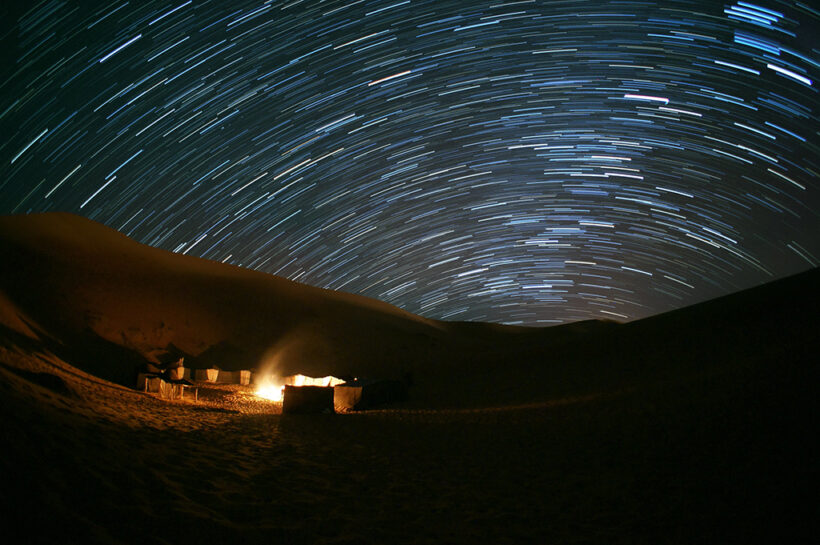I arrived in the year 2000 in the city of Madrid accompanying a group of Sahrawi children. We were hosted in Leganés by an association of friends of the Sahrawi people. I acted as interpreter and mediator with the host families. Like those children, I went to Cuba when I was 12 years old. I remember the first time I went into a tropical forest, everything was green and full of different coloured fruits that I had never seen before. The Cubans had always recognised us as Sahrawis as well as other countries. They knew that the territory of Western Sahara was a former Spanish province, a non-self-governing territory that had a recognised right to self-determination. Many children from Yemen, Syria, Lebanon, Angola and South Africa studied in Cuba, to name but a few countries that had educational cooperation agreements. However, in the case of the Saharawis, they knew that we spoke Spanish, as did our parents and grandparents. Education and communication were easy. Despite the mediation of the teachers who accompanied us in those boarding schools.
When we arrived at the Cuban universities, they gave us a language test and most of us passed it. In this way we were exempted from teaching Spanish. All this reminds me of my arrival in Madrid with those boys and girls who came from the Sahrawi refugee camps. We arrived with a travel document issued by the Algerian authorities and once it expired, we became stateless or undocumented according to the law on foreigners.
My case was very clear. I was born in 1970 near the city of Dakhla in a valley of thorny acacia trees called Negyir. My father worked in a company known as the Mining and Industry Service, which was engaged in the search for water and minerals throughout Western Sahara. My mother, on the other hand, learned to sew in the Women’s Section at the time. My maternal grandfather’s case was even more striking: he was a member of the Spanish parliament at the time and at the same time vice-president of the Sahara Assembly. My grandfather’s name is Baba Ould Hasenna and he was at the UN headquarters in the 1960s, along with other Sahrawi MPs, to show that Western Sahara had a people with its own language and identity. When I decided to stay in Madrid, they requested my entry visa and gave me a temporary residence permit that did not allow me to work. I was an Algerian for the administration. At no time was my status as a Sahrawi whose parents had worked and paid social security contributions recognised.
After a long process and with my original birth certificate, I was granted the right to recover the Spanish nationality I had lost due to Morocco’s military occupation of Western Sahara. Today there are many Sahrawis who have been denied Spanish nationality and have become stateless or undocumented. My father’s case is shocking, he paid contributions for several years and is still in a legal limbo with no possibility of recovering his rights.
The proposal of the Unidas Podemos group for the granting of Spanish nationality to the Saharawis, presented by the deputy Enrique Santiago, is just and legitimate. It reminds us of the right of a people to live freely in their own land and to enjoy their status as citizens anywhere in the world.
Western Sahara must be decolonised in accordance with UN law, its people must be masters of their destiny. The recognition of the Sahrawi Republic by many countries is clear proof of the struggle to preserve the identity and uniqueness of a people they have sought to eliminate at every vote.
The Sahrawi children who come every summer to Europe from a refugee camp are clear proof of an unjust military occupation that persists over time.
No socialist member of parliament from a democratic country can justify his or her vote against the human rights of a people. The Saharawis are human beings and therefore deserve to be recognised just like the Sephardim who were granted Spanish nationality after several centuries. The history of the Sahara is recent and the wound is too deep.
One day – and I hope not too far away – we will be able to return to our land, to the places of our childhood on the summit of these verses that are born in the devil’s cave, there in the heart of Tiris. In search of freedom in the middle of the immensity, in the Sahara of our grandparents.
Oh, mountain of the devil
Oh, mountain of the devil
dark wall
covered with sand
between acacias and dunes,
I remember you today and always,
I know the wind that crosses you
the footprint of that gazelle
in the heart of a road.
The starry sky
the look of the night
the light of a bonfire
the silence of the soul
on the devil’s mountain.
I’ll come back to you
wounded with nostalgia
full of tears
in search of an instant
a ray of light
on your summit.
Oh, mountain of the devil
I’ll look for your grains of sand
in its interior
when I knew you
absorbed in silence.










